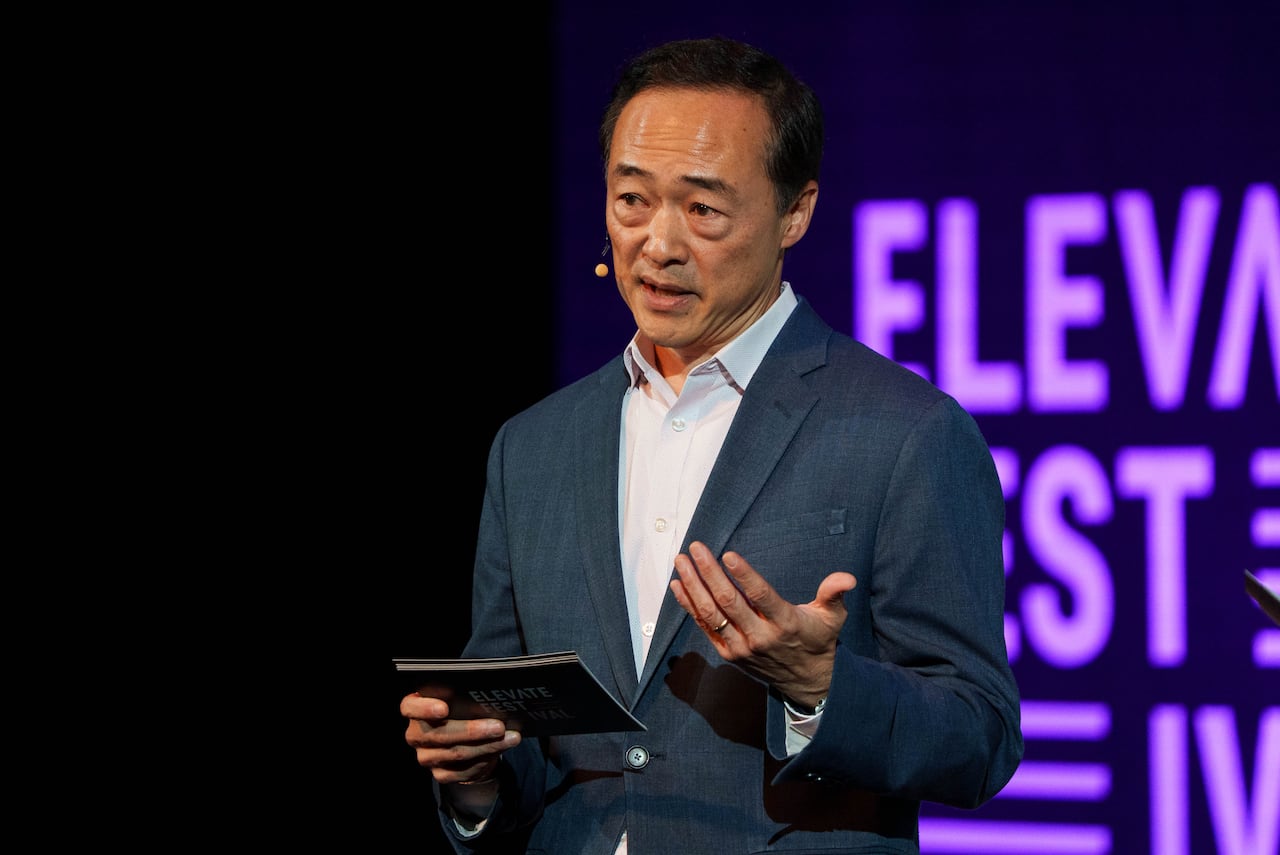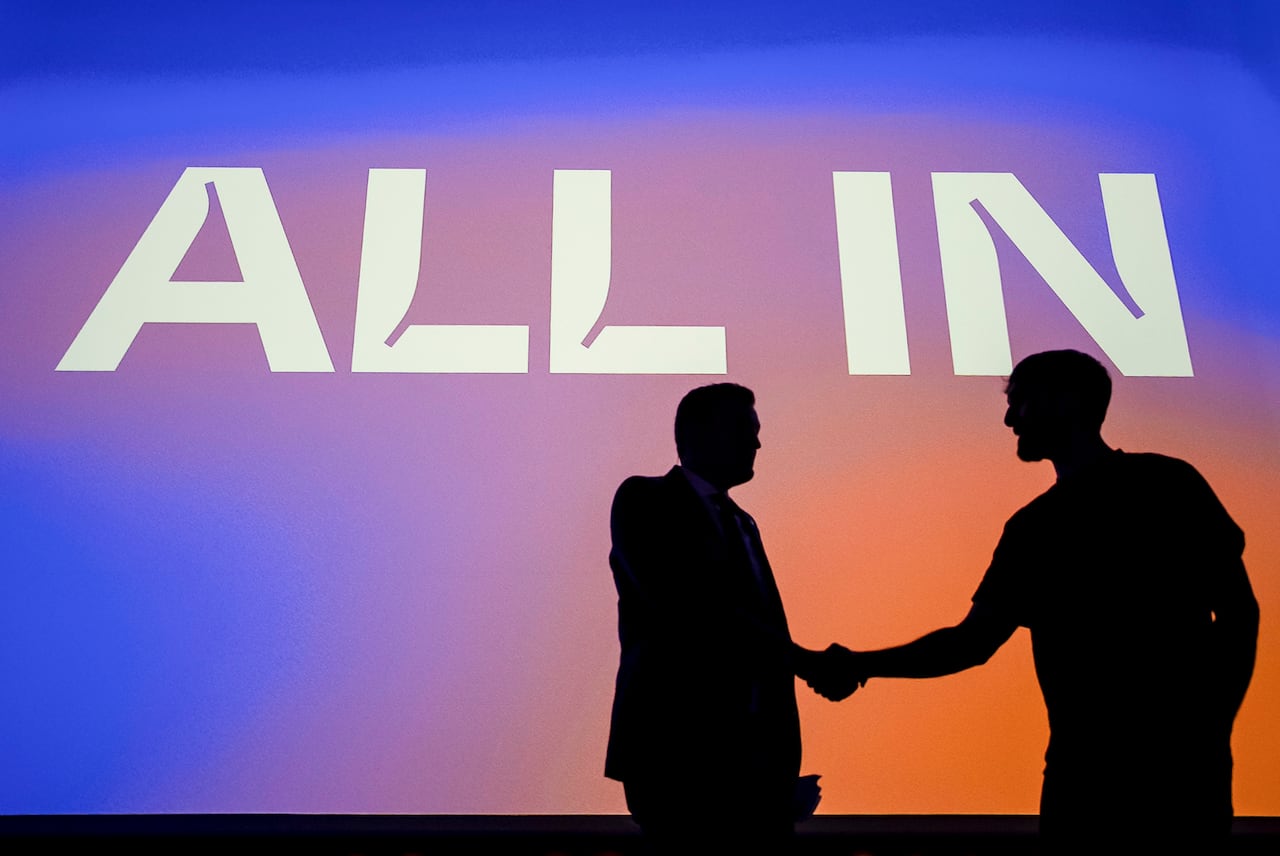One of the world’s biggest artificial intelligence companies is knocking on Canada’s door, potentially armed with an offer that — under normal circumstances — would be hard to refuse.
OpenAI is building a global network of data centres to store the massive amounts of information collected by its services, including ChatGPT — and Canada’s cheap energy could help with that.
The company believes AI and its associated infrastructure will be the base of future economic development, and it says it wants to help spread what it calls “democratic AI.” It recently launched “OpenAI for countries” to pounce on the opportunity.
Meanwhile, Canada, wary of an increasingly protectionist U.S. government and the powerful American tech companies subject to its laws, is trying to distance itself from foreign players by building AI models domestically. And paradoxically, OpenAI says it can contribute to that — by building those centres on Canadian soil.
The company is currently looking at building data centre infrastructure in Canada, building on its $500-billion US Stargate initiative in the United States and similar projects around the world.
“There are so many different elements that go into building an AI model that Canada has in abundance, whether it’s the power and the resources — and frankly, the wherewithal and the desire — to really be a leader in the technology,” said Chan Park, OpenAI’s head of U.S. and Canada public policy and partnerships, during a recent interview with CBC News at Toronto’s Elevate Fest.

Park has met with key officials, including Artificial Intelligence Minister Evan Solomon, to discuss a potential partnership.
Canadian politicians, public policy experts and business leaders have been increasingly vocal about the need for “digital sovereignty,” a term referring to a country’s ability to control its own data and technological infrastructure, including by owning and storing its data domestically.
Canada is at a crossroads as it balances this pursuit, and partnering with OpenAI could be an exercise in self-defeat, experts told CBC News. Still, they agreed the country can’t risk hindering its own advancement by shutting global companies out entirely.
U.S. access to Canadian data
The concern with foreign companies owning Canadian data is that they would be beholden to their respective countries’ laws, “allowing [the information] therefore to be moved to different countries,” said Jennifer Pybus, an associate professor of political science and Canada Research Chair in data, democracy and AI at York University in Toronto.
“I think people are very concerned that most Canadian data is actually processed by American companies,” she added. “And so Canada wants to have this agency to have more autonomy and control over the data of Canadians here in Canada.”
Data centres are also extremely resource-intensive, requiring roughly the same amount of electricity needed to power eight million to 10 million homes in Canada, by Pybus’s estimate. Likewise, some data centres use up to a billion gallons of water per year to keep cool because they generate so much heat.
Guillaume Beaumier, an assistant professor of political science and international studies at l’École nationale d’administration publique in Quebec City, said he was struck by OpenAI using digital sovereignty as an international selling point for its products.
“But to be honest, I think we can be very critical of the extent to which it’s going to be able to achieve and promote greater Canadian sovereignty,” he said, partly because of existing U.S. legislation that limits a country’s control over data stored by American companies.

The 2018 CLOUD Act gives the American government the authority to access data from anywhere so long as it’s maintained in a server owned by a U.S. company. Canada and the U.S. have been negotiating a bilateral agreement on the CLOUD Act for three years, but none exists yet.
A huge chunk of cloud storage servers and data centres in Canada is owned by companies like Microsoft, Amazon and Google, according to Beaumier — meaning that Canadian data, even if processed on Canadian soil, is ultimately being governed by the United States.
American companies have shown that they will comply with U.S. law over those of another jurisdiction’s. Microsoft executives admitted earlier this year to a French hearing committee that the company “cannot guarantee” data sovereignty to member countries of the European Union because it is bound by the CLOUD Act.
Meanwhile, the Canada-U.S.-Mexico Agreement has a clause that restricts the countries’ ability to control the transfer of data, including personal information, between borders for business purposes. Facebook, for example, can send Canadian data to a U.S. centre instead of building one in Canada, said Beaumier.
Front Burner32:33Inside OpenAI’s zealous pursuit of AI dominance
“One of the main arguments made by these companies [is] that they’re gonna try to devise technical solutions to avoid being forced to provide this data to the American government if they’re asked to,” he said.
“There might be ways to do this — to basically say, ‘We’re building something that even we cannot access and cannot then transfer to the U.S. government.’ But then it goes back to a question of trust, and how much trust we’re willing to put into these companies.”
Meetings aren’t endorsement, says minister’s office

In addition to the massive Stargate investment, OpenAI currently holds a number of significant contracts with the U.S. government, including an agreement to supply ChatGPT to the entire federal workforce, and a recent $200-million US contract with the U.S. Department of Defence.
“You still face the risk that if the U.S. government basically asked the company to stop offering their services in Canada, they might have to do it,” said Beaumier.
Asked whether there is any tension in an American company that holds contracts with the U.S. government building sovereign technologies in countries that are trying to reduce their dependence on the U.S., Park said, “not at this point.”
“We understand, obviously, the interests of Canadians, of the Canadian government, of Canadian businesses, to make sure that any sort of AI ecosystem that’s built up here in Canada is really rooted in Canadian values” while respecting privacy interests, he said.
Minister of Artificial Intelligence Evan Solomon explains how his new expert panel’s ’30-day sprint’ toward an updated AI strategy hopes to keep companies and jobs in Canada despite hundreds of billions of dollars in investments from China and Silicon Valley. Solomon argues Canada is ‘starting from an incredibly advanced position’ in the industry, but also says the country has ‘an adoption problem’ with AI.
CBC News reached out to Solomon’s office to ask about his meetings with OpenAI amid the push for digital sovereignty and whether a partnership with the company would conflict with that strategy.
“Minister Solomon meets regularly with both Canadian and international technology leaders to advance Canada’s digital and AI strategy. These meetings are part of ongoing engagement and do not represent endorsement or active negotiations,” a spokesperson said.
“Our priority is ensuring that any AI or digital infrastructure built in Canada — whether by domestic or international partners — operates fully within Canadian laws and regulatory, security, and privacy frameworks.”
‘We can’t be walling off the border’
Still, experts acknowledged that Canada can’t impede its own progress in artificial intelligence, lest it be left behind in developing technology that could transform the global economy.
“I think we’ve got to be pragmatic here. We can’t be walling off the border and thinking that digital infrastructure is something that Canadian firms can solve solo. No country can do that, not even the United States,” said Benjamin Bergen, president of the Council of Canadian Innovators.
There’s going to be “some net benefit” in Canada tapping the expertise of foreign firms for certain solutions, added Bergen, but he cautioned that any loss of autonomy in those relationships could have consequences.
That only highlights the need for Canada to look inward for the same technologies that it has long sourced from other countries, Bergen and Beaumier agreed.
Toronto-based enterprise AI company Cohere, for example, recently partnered with the federal government, while other companies are pushing Ottawa to adopt their homegrown cloud service.

“There are firms in this country that do that. Are they at the scale of Amazon or OpenAI? No,” said Bergen, adding that Canada-built technology can also be sold to other countries trying to limit American or Chinese dependence.
“But you’ve got to begin somewhere in terms of supporting firms that are able to do forms of digital technology that we view as sovereign, and that are just non-negotiable.”
link


